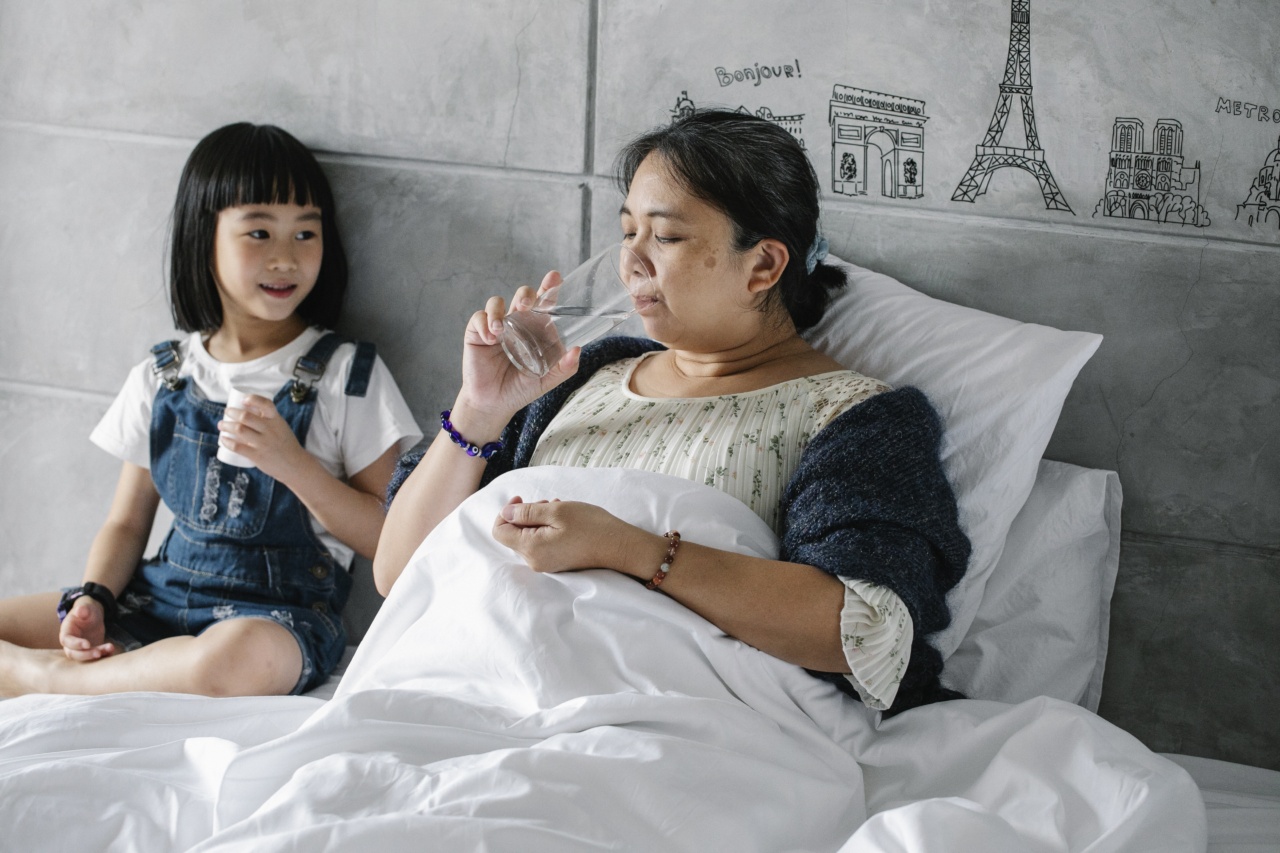Contracting the flu can be a daunting experience, especially as we age. At the age of 51, the immune system may not be as strong as it once was, making it more challenging to overcome the flu.
However, by taking proactive measures and following a plan to boost your immune system, you can successfully overcome the flu at age 51.
Understanding the Flu
Before discussing how to overcome the flu, it is important to understand what it is. The flu, or influenza, is a viral infection that affects the respiratory system.
It can cause mild to severe symptoms, including fever, cough, sore throat, body aches, and fatigue. The flu can be particularly dangerous for older adults and those with weakened immune systems.
1. Get Plenty of Rest
Rest is crucial when recovering from the flu, especially at age 51. Your body needs time to heal and fight off the infection. Make sure to get plenty of sleep and avoid strenuous activities that can further weaken your immune system.
2. Stay Hydrated
Drinking plenty of fluids is essential for staying hydrated and flushing out toxins from your body. Water, herbal teas, and clear broths can help soothe your throat and keep your body hydrated, aiding in the recovery process.
3. Take Over-the-Counter Medications
Over-the-counter medications can help alleviate flu symptoms and make you more comfortable. Pain relievers like acetaminophen or ibuprofen can reduce fever and relieve body aches.
However, it is important to consult with your doctor or pharmacist before taking any medications, especially if you have underlying health conditions.
4. Eat Nutrient-Dense Foods
Consuming a well-balanced diet rich in nutrients is vital for strengthening your immune system. Include a variety of fruits, vegetables, whole grains, lean proteins, and healthy fats in your meals.
These foods provide the necessary vitamins and minerals to support your immune system and aid in your recovery.
5. Practice Good Hygiene
To prevent the spread of the flu and speed up your recovery, practice good hygiene habits. Wash your hands frequently with soap and water, especially after coughing, sneezing, or touching surfaces.
Avoid close contact with others and cover your mouth and nose when coughing or sneezing.
6. Use Natural Remedies
In addition to conventional treatments, natural remedies can help alleviate flu symptoms and boost your immune system.
Some popular natural remedies include drinking warm honey and lemon, gargling with saltwater, using nasal saline sprays, and taking herbal supplements like echinacea or elderberry.
7. Stay Warm and Comfortable
Feeling cozy and warm can help alleviate flu symptoms and make you more comfortable. Keep your room temperature at a comfortable level and bundle up with warm blankets.
This can also help reduce muscle aches and promote relaxation, aiding in your recovery.
8. Seek Medical Attention if Needed
If your flu symptoms worsen or persist beyond a few days, it is important to seek medical attention. Your doctor can assess your condition, provide further guidance, and prescribe antiviral medications if necessary.
They can also evaluate if you are at a higher risk of flu complications and provide appropriate care.
9. Stay Positive and Manage Stress
Maintaining a positive mindset and managing stress can contribute to your overall well-being and aid in your recovery.
Engage in activities that bring you joy, practice relaxation techniques such as deep breathing or meditation, and seek support from loved ones or a support group.
10. Get Vaccinated
Prevention is always better than cure. To protect yourself against future influenza strains, consider getting an annual flu vaccine.
Vaccination can significantly lower your risk of contracting the flu and experiencing severe symptoms, particularly as you reach your 50s.
Conclusion
While overcoming the flu at age 51 may pose some challenges, it is certainly possible with the right approach.
Rest, hydration, proper nutrition, good hygiene, and supportive treatments can greatly improve your chances of fighting off the flu and returning to optimal health. Remember to consult with a healthcare professional for personalized advice and to ensure the best course of action for your specific situation.































